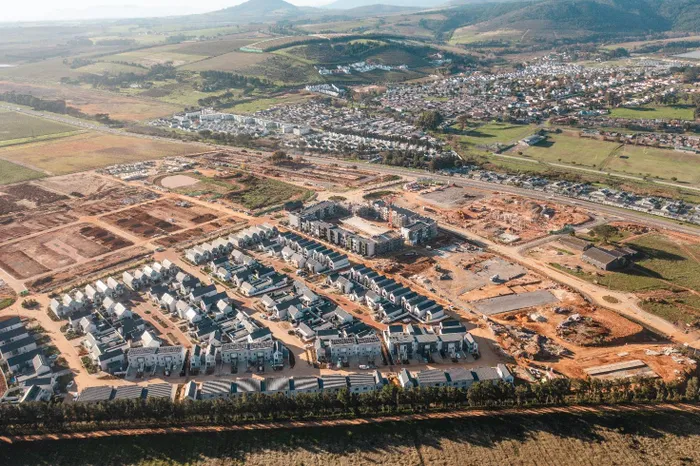South Africa's new 3% inflation target: a game-changer for the housing crisis?

A 1% lower mortgage rate on a R1.5 million bond can save one over a thousand rand a month-that’s real buying power.
Image: Sebastian Machill (2025)
The new 3% inflation target is expected to indirectly support the country’s efforts to address the housing crisis, as lower inflation and borrowing costs make home loans and housing finance more accessible to consumers.
This announcement helps create a favourable financial climate, said Tim Akinnusi, co-founder and the chief executive officer of MortgageMarket.
However, Akinnusi added that the government still needs to unlock more serviced land and support developers to bring stock to market.
Delivering the 2025 Medium Term Budget Policy Statement (MTBPS) on Wednesday, November 12, Finance Minister Enoch Godongwana announced a new inflation target for South Africa of 3 percent with a 1 percentage point tolerance band.
Godongwana said that this decision followed an agreement between the Governor of the South African Reserve Bank, Lesetja Kganyago, and his consultations with President Cyril Ramaphosa and the Cabinet.
The 1 percentage point band is said to provide flexibility to accommodate any unexpected inflationary shocks.
"This is in line with South Africa’s approach to inflation targeting, which has always been a flexible one, looking beyond short-run deviations in inflation," he Godongwana.
Inflation relatively under control
MortgageMarket, a mortgage broker, said that inflation is relatively under control now, so from this perspective, this move sends a strong signal that the government and the South African Reserve Bank (SARB) are serious about price stability.
It said that in the short term, policy might stay firm to pull inflation expectations down, so the property market may not see an immediate drop in interest rates but could be surprised with a cut in of 50bps next week.
“But over the next two years, as inflation becomes more stable around 3%, we’ll see the real benefit - lower long-term rates, cheaper credit and more predictable mortgage costs."
"That’s positive for property buyers, developers and the broader economy,” said its co-founder, Akinnusi.
Advice to aspiring homeowners
Advising aspiring homeowners, he said that they should use the next 18 to 24 months wisely.
“Build your credit score, pay down debt and get pre-approved for a home loan, so when rates begin easing, you’re first in line to benefit."
"A 1% lower mortgage rate on a R1.5 million bond can save you over a thousand rand a month-that’s real buying power.”
According to Akinnusi, with a lower inflation anchor, the SARB can eventually run with lower interest rates.
“It won’t happen overnight, but once credibility is established, it supports affordability, investment, and growth across the property sector.”
On the other hand, Dr Roelof Botha, the economic advisor to the Optimum Investment Group and Currencies Direct, said that: "First and foremost, it should be pointed out that the lower inflation target effectively means that interest rates will remain elevated on a permanent basis, especially when (not if) a currency depreciation occurs."
He said that it is common sense that a country’s inflation rate will increase when imports become more expensive.
“It is also common sense that higher interest rates cannot prevent price shocks such as occurred shortly after the Covid-19 pandemic, when global maritime freight charges increased by 700% and the oil price increased by 400%.”
Impact of record-high interest rates
Botha said that in order to assess the likely impact of the lower inflation target on the local property sector, it is important to reflect on the current environment in the sector, which has been significantly influenced by the record high interest rates of 2023 and 2024.
He said that when the MPC raised the prime overdraft rate from 7% in November 2021 to a 15-year high of 11.75% in May 2023 (automatically through the official repo rate), there was no demand inflation at the time.
As a result, a predictable and sharp decline occurred in the number of home loan applications, as confirmed by the BetterBond Index of Home Loan Applications.
Restrictive monetary policy impact
Furthermore, Botha said that the effect of unduly restrictive monetary policy, especially around 2023, has led to a decline in the real value of building plans passed in KwaZulu-Natal, Gauteng and the Western Cape by 71%, 69%, and 59%, respectively, over the past four years.
He added that the real value of construction materials has also not recovered to its pre-Covid level.
The South African construction sector remains in a serious recession. Virtually all key indicators of activity in this sector have declined since the adoption of a restrictive monetary policy stance between 2022 and 2024.
“It should be noted that construction is the most labour-intensive sector of the economy, and the lower inflation target is bound to prevent meaningful employment creation in the future.”
For the broader economy, Botha said that the lower target range will also exert a dampening effect through the prospect of the prime overdraft rate remaining at a level of between 10.5% (its current level) and 11.5%, or higher, depending on what happens to the inflation rate.
He said that this means that the real cost of credit and of capital will also remain at between 7.1% (its current level) and 8% or higher, which is more than double the figure that existed during the tenure of the previous governor of the SARB, Gill Marcus.
Independent Media Property
Related Topics: